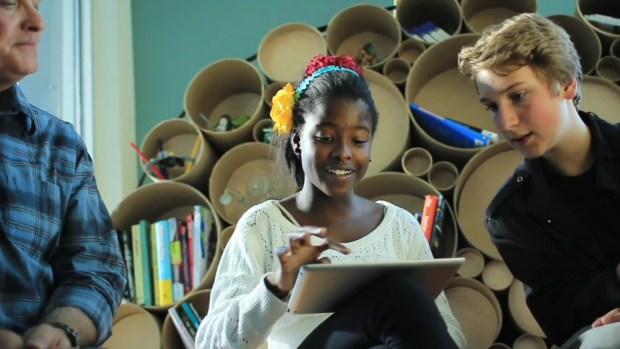
GameDesk
By Andrew Miller
GameDesk, an organization that's developing a variety of game-based learning initiatives, is venturing into new terrain with the opening of a new school and the development of new digital tools, with millions of dollars in funding from both the Bill and Melinda Gates Foundation and AT&T.
The PlayMaker School, funded by the Bill and Melinda Gates Foundation, will open in Los Angeles on September 7, with 60 students in 6th grade, and will operate as a "school within a school" at New Roads, an independent middle school.
Like Quest to Learn, the game-based school in New York, PlayMaker will incorporate principles of game-based learning into the entire instructional model, but with an additional focus on making and discovering. The goal is to engage students in both high-tech and low-tech games and modular, instructional activities. Individual students will work with an “Adventure Map” that will guide them to choose their own path, allowing for students to control how they learn and when they learn it. These modules will be not only individual tasks, but will also include group work. In a unit on kinetic and potential energy, for example, students will watch videos, play games, create digital roller-coasters, and create real-life models.
With ongoing formative assessments tied not only to the Common Core, but also practical digital skills, collaboration, critical thinking, and social emotion learning principles, the focus is meant to go beyond traditional schooling goals. Instruction will focus on providing context for the content, whereby students understand the relevance of what they're learning. Teachers will play the roles of questioners, facilitators, and reflective agents.
More information will soon be released about the specifics of the program.


